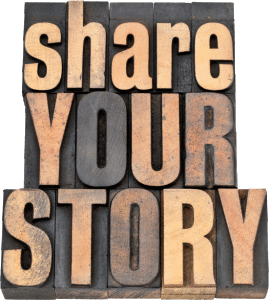Historians need to stop thinking about the tenure track as the only way and as the only measure of success within the profession. The profession would instantly help improve the job market for historians by improving its ability to help students at all levels of historical training recognize and discuss their unique and valuable skill set outside of the academy. It also needs to stop treating employment within the tenure track as the only “true” job market for historians and as the only measure of success.
Public History as a Specialty: Reflections on the 2015 NCPH Conference
 Have you ever stepped outside of your professional comfort zone by attending a new conference or event?
Between April 15 and 18, 2015, I tried something new: I attended my first annual meeting of the National Council on Public History. The meeting took place in Nashville, Tennessee.
Have you ever stepped outside of your professional comfort zone by attending a new conference or event?
Between April 15 and 18, 2015, I tried something new: I attended my first annual meeting of the National Council on Public History. The meeting took place in Nashville, Tennessee.
In this post, you will discover what makes the NCPH annual meeting similar to and yet different from traditional academic history conferences and how the conference demonstrates public history as a specialty.
Overview of History on the Edge, NCPH 2015
The 2015 NCPH annual meeting met to “consider the edges of what we do and who we are” as public historians.
Panels explored the future of public history, how the field can collaborate with other disciplines and interact with new audiences, and how public historians can contribute to “the cutting edge questions of our societies."
(2015 NCPH Annual Meeting Program)
Exploring New-to-Me Professional Territory
 I chose to attend NCPH instead of OAH because as a hybrid historian, I live with one foot in academic history and one foot in public history, and yet I had never attended a public history conference.
I chose to attend NCPH instead of OAH because as a hybrid historian, I live with one foot in academic history and one foot in public history, and yet I had never attended a public history conference.
In 2014, I watched as my Twitter stream filled with interesting tweets about NCPH sessions and about how much fun my colleagues were having at the conference, so I made a commitment to attend my first NCPH annual meeting in 2015.
Over the course of the 3-day conference, I could not help but compare my NCPH experience with my participation in numerous AHA, OAH, SHEAR, and OIEAHC conferences. My mind made three important observations about the differences between these experiences and about the historical profession.
1. Public History is a Specialty
The NCPH defines public history as “the many and diverse ways in which history is put to work in the world.” Some know public history as “applied history” as the profession seeks to apply history to real world issues.
By those definitions, I qualify as a public historian.
I claim to be part public historian because I spend a good portion of my time trying to help non-historians form a meaningful connection with history. I perform this work by writing articles, podcasting, tweeting, and leading occasional tours of revolutionary Boston.
Although I qualify as a public historian professionally, I felt a bit out of my element at NCPH.
 As I attended panels and conversed with colleagues, I came to understand that professionally-trained public historians have specialized skills that many university or research-driven historians overlook.
As I attended panels and conversed with colleagues, I came to understand that professionally-trained public historians have specialized skills that many university or research-driven historians overlook.
Public historians often work with and produce a different type of scholarship from those of us who trained as academics. They study, create, and apply theories of historical interpretation when they consider how to create exhibits and convey information to the public.
Sessions on project management and how to include and interpret women at historic sites offered a glimpse of how public historians create exhibits and interpretive programs. This process involves more than just determining what historical facts to include or omit. It involves a careful consideration of audience, perspective, organization mission statements, funding, exhibit space, and the consideration and application of theories for how to convey information to visitors through print, visuals, and tech devices.
Anyone who thinks that public history makes a great “Plan B” for graduate students who train as academic historians should attend NCPH. Once they take part in a few sessions and interact with their public history colleagues they will realize that public historians work on history, but in a different way from academics.
Public historians grapple with a different set of scholarly issues that most academic programs don’t expose their graduate students to. If academic programs want to make public history a viable “Plan B” for their graduates, then they need to collaborate with public history programs to offer training in the skillsets required by the public history profession.
2. Historians Need to Collaborate More
 Public historians face many of the same or similar problems that academic historians face: Lack of funding, inadequate institutional resources or support, and insufficient compensation for interacting with the public.
Public historians face many of the same or similar problems that academic historians face: Lack of funding, inadequate institutional resources or support, and insufficient compensation for interacting with the public.
Additionally, both academic and public historians grapple with interpretive questions that each specialty could help the other answer.
In a session about how to include and interpret women in historical sites and museum exhibits, someone raised the question about how public historians can overcome the lack of women’s voices in the historical record. Academic historians receive training in how to look at and use what the historical record does not say.
Conversely, some of the techniques that public historians use to interpret history could be of real value to academic historians.
As I mentioned in “Wanted: 21st-Century History Job,” the future of the field lies in collaboration and in the development of more hybrid historians. Together academic and public historians can cultivate wide public awareness about the past and convey history in a way that makes it as relevant to the present.
3. NCPH is a Fun and Great Conference for Networking
I won’t lie, I was nervous about attending NCPH.
Part of what I love about attending conferences is catching up with friends. I knew I would know a few attendees from Twitter, but the majority of my professional network and historian friends do not attend NCPH.
 My fears of being unwelcome or lonely disappeared within the first 15 minutes of the conference. The first person I met introduced herself and we became fast friends.
My fears of being unwelcome or lonely disappeared within the first 15 minutes of the conference. The first person I met introduced herself and we became fast friends.
Most NCPH attendees were very welcoming. They wanted to be at NCPH and they wanted to interact with and meet new people.
In fact, the public historians I met seemed more concerned with meeting me as a person rather than me as an historian. We met each other as people before we delved into professional chit-chat about where we worked and what areas of history interested us. This type of interaction happened throughout the conference.
Additionally, NCPH encourages attendees to visit the host city. They build walking and museum tours into the conference program; participating in a tour counts as attending a conference session.
I am famous for attending history conferences and never visiting the sites around me because I am so focused on the conference program. I would have done the same at NCPH, but the program encouraged me to have fun and consider history and history conversations outside of the conference hotel. Tours also allowed me to meet and meaningfully network with more people during these shared experiences.
Conclusion
NCPH is a fun conference and one that every historian should make a point to attend.
NCPH will introduce you to a welcoming group of historians and their professional work.
I plan to attend NCPH every two or three years. This periodic attendance will help me stay abreast of what my public historian colleagues are up to, what challenges they face, and where opportunities exist for collaboration between academically-trained and public historians.
 Share Your Story
Share Your Story
Have you ever attended NCPH? What was your experience like?
What is the most fun history conference you attend?
4 Tips for How to Tailor Your Public History Job Search
 Are you looking for a public history job?
In the latest issue of “Public History News,” Nick Sacco, keeper of the National Council on Public History's wonderful job board, offered 4 tips for job seekers.
Are you looking for a public history job?
In the latest issue of “Public History News,” Nick Sacco, keeper of the National Council on Public History's wonderful job board, offered 4 tips for job seekers.
In this post you will learn about Nick Sacco’s 4 tips for public history job seekers. You will also find additional resources and insights that I have added.
(You may also find 5 Job Search Sites for Historians a helpful resource too.)
Nick Sacco's 4 Tips for Public History Job Seekers
1. Know What You Are Looking For
Public history covers a wide array of occupations.
The breadth of the field makes it imperative that you know what professional skills you have.
Sacco advises that you develop a “clear vision” of the type of job you want, your professional goals, where you want to live, and your salary requirements.
How do you identify your “clear vision?”
 Research the different types of history jobs available. Read job descriptions and ask other public historians about what they do.
Research the different types of history jobs available. Read job descriptions and ask other public historians about what they do.
Reading job descriptions and talking with other public historians will give you a good idea about what types of jobs, titles, and responsibilities are available to public historians. It will also provide you with information you can use to direct your job search.
I interviewed 2 National Park Service historians when I considered becoming an NPS historian.
My interviews helped me realize that I did not want to be an NPS historian based on the fact that many of their responsibilities included tasks that I did not find appealing.
You may also find cost of living calculators and salary comparison tools useful as you try to determine whether or not to apply for a job or accept a job offer.
2. Be Aware of Deadlines
Apply before it’s too late.
Many job postings have strict closing deadlines. The government of the United States has very strict deadlines and if you miss them you will not be to apply for the position.
3. Look For Job Openings on the State and Local Levels
If you want to work for the government remember that the United States has 3 levels of government: local, state, and federal.
Many job seekers consider only the federal level, but many states and local communities employ historians too.
Sacco offered the California Association of Museums, the Association of Mid-West Museums, PreservationDirectory.com, and statelocalgov.net as useful sites that will help you find state and local history jobs.
 If you live in Massachusetts, you should also check out HireCulture.org.
If you live in Massachusetts, you should also check out HireCulture.org.
4. Look Everywhere
Check institution websites.
As the NCPH’s job site guru, Sacco has found that many cultural institutions promote jobs only on their home website.
Be sure to check the websites of the organizations you dream of working for. If you have a strong desire to work for a particular organization you may consider volunteering, which would allow you to network within the organization.
With that said, the panelists on the Public History Jobs panel at the 2014 History Camp Boston differed in their opinions about whether volunteer service would help you get a job. About half of the approximately 8 panelists said that volunteering would help, the other half said you shouldn’t work for free.
Conclusion
Nick Sacco offers fantastic advice for public history job seekers.
He encourages job seekers to develop a clear picture of the types of jobs they want and to cast as wide a net as possible when they conduct their job search.
 Share Your Story
Share Your Story
Are you working your dream history job? If so, tell us about what you do.
What tips helped you during your job search?
5 Job Search Sites for Historians
 As people settle back into their non-summer routines, some historians will think about finding a new job.
If you are a historian looking for work, be sure to check out the following great job search sites.
As people settle back into their non-summer routines, some historians will think about finding a new job.
If you are a historian looking for work, be sure to check out the following great job search sites.
5 Job Search Sites for Historians
1. H-Net Job Guide: This job board posts positions for professors, librarians, administrators, documentary editors, and jobs with public history organizations. The best part, you can sign-up to receive job postings via e-mail.
2. The National Council on Public History Job Board: This site is the go-to resource for anyone looking for a job in public history. The NCPH organizes listings by date and lists the geographic location of the position at the end of each post. The NCPH Job Board is a great place to see the wide-range of non-academic positions available for historians.
3. The Association for Documentary Editing Job Board: The ADE lists positions associated with documentary editing projects such as the Mark Twain Papers or the Adams Papers. They also post support staff positions associated with these projects.
4. USAJobs.gov: Looking to work as a government historian? Check out USAJobs.gov. Use the "what" search to find "historian" positions as well as the "where" search to specify a geographic region.
5. HireCulture.org: Okay, so this job board is specific to Massachusetts, but perhaps your state offers a similar site. The Massachusetts Cultural Council hosts this site so “creative employers” can connect with “creative jobseekers.” Sometimes the jobs relate to history, often they don’t. It is a wonderful place to explore different kinds of work that a trained historian could pursue.
What Do You Think?
Where do you search for jobs? Do you know of another site that should be on this list? Please share by leaving a comment or sending a tweet.
To Intern or Not to Intern?: Internships and Volunteer Opportunities for Historians
On Monday August 19, the National Council on Public History posted “Unpaid Internships: A foot in the door or a step backward?” on their History@Work blog. In this roundtable discussion, four public historians offered their insights on whether historians should “pursue unpaid internships or volunteer opportunities as part of [their] professional training.” The panel did not reach a consensus. I believe that historians who want to work for public history organizations need to seek out pre-employment experience through internships or volunteer work. Given the current economic climate and number of people looking to enter this line of work, my experience has shown that these opportunities are likely to be unpaid and competition stiff.
 My Story
My Story
While in graduate school, I volunteered at public history organizations like the Albany Institute of History & Art, the New York State Museum, and the Van Schaick Mansion. I also entered graduate school with a background in public history: I worked as a seasonal interpretive ranger at the Boston National Historical Park for 5 years. I thought that I could translate this experience and my academic credentials into a public history job. However, my academic training and interpretive background were not enough. Public history organizations want job candidates with more diversified skill sets.
Historical organizations in Boston tend to favor candidates with either a master's degree in library science (from programs that teach students social media skills and about digital humanities) or an M.B.A. in non-profit management.
After a few failed applications for public history positions, I changed my strategy. If these organizations want historians with a background in non-profit management and fundraising, then I would find a way to acquire experience with those skills.
I kept my eyes peeled for paid internships, but I did not see any.
There are two reasons for the paucity of paid public history internships:
First, most public history organizations do not have the money to pay for enough staff let alone interns.
Second, competition for unpaid internships is stiff. How stiff? I may have a Ph.D. and a willingness to learn, but that did not help me best the undergrads and master's students who garnered the advertised internships I applied for.
 Seek Your Own Opportunities
Seek Your Own Opportunities
Frustrated, but not deterred by my lack of success, I created my own opportunities. Rather than seek out internships with well-known public history organizations, I sought opportunities at smaller organizations.
First, I contacted Boston by Foot. This non-profit organization coordinates over 200 volunteer docents who lead history and architecture tours of Boston. At first, I volunteered to be a docent. However, as I went through their “Guides-in-Training” program, I realized that with a staff of two, I might be able to assist the organization in a mutually beneficial way. I asked the organizational director if I could volunteer in a way that would help them and allow me to learn more about how to run a non-profit. End result: I am learning how to cultivate corporate sponsorships.
Second, I e-mailed the South End Historical Society. I explained that I wanted to explore a transition into public history and asked if I could volunteer. Short on staff, they gladly took me up on my offer. Presently, I am serving on the House Tour Committee, which organizes and coordinates the largest fundraiser for the organization.
 5 Valuable Lessons
5 Valuable Lessons
My search for public history employment and internships has taught me several valuable lessons:
1. Do not discount the specialized skill sets and training public history organizations want. They hire people who possess experience with social media, digital humanities, and non-profit management.
2. A Ph.D. in history does not automatically lead to a public history job or internship.
3. Seek out and create your own opportunities. If an opportunity with well-known historical organizations does not work out, research and reach out to smaller organizations.
4. Be specific about the opportunities you want. Tell historical organizations what it is you want to learn, why they can help you acquire this knowledge, and what skills you possess that they might make use of.
5. Don’t be afraid to volunteer if you have the means to do so. Unpaid internships/volunteer opportunities pay, just not in money. Instead, you will gain experiences and connections that you will later use to obtain a paying job.
What Do You Think?
Do you think historians should pursue unpaid internships and volunteer opportunities as a part of their professional training?

